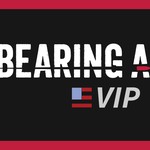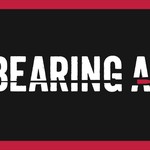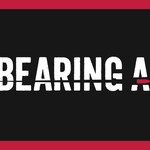Soldiers can start voting on the IPFU beginning Oct. 9. To vote, go to https://ipfusurvey.natick.army.mil, and log in with your CAC. If you want to take the survey without having to log in with your CAC, visit https://surveys.natick.army.mil/Surveys/ipfu.nsf.
WASHINGTON (Army News Service, Oct. 4, 2012) — Back in February, the Army gave Soldiers a chance to weigh in on the Improved Physical Fitness Uniform. The Army took those Soldier suggestions and developed a possible replacement uniform. Now Soldiers can vote on which one of those they think looks the best.
More than 76,000 Soldiers responded to the initial survey. Among other things, Soldiers commented about uniform fit, moisture wicking and anti-microbial properties and how much the uniform weighs. The Army listened to Soldiers and has developed a new Improved Physical Fitness Uniform, or IPFU.
Now the Army wants Soldiers to weigh in on color options and graphic patterns for the uniform. There are six candidate uniforms — they are all the same in terms of fabrics, capabilities and durability. What’s different is the color of the fabrics and the size, color and shapes of the graphic designs.
All Soldiers have the option to log on and choose which uniform option they like best. The poll goes live beginning Oct. 9, and will be available for 20 days.
Stylistic variations include different colors for the jacket and pants — black or gray, for instance. Soldiers can also choose among graphic elements and colors for graphic elements.
With the jacket, for instance, there is a chevron emblazoned across the chest. That can be in yellow, grey or black, and it can be thick or thin. On the shorts, there’s the option to have colored piping on the sides. For the long and short-sleeve T-shirts, there’s both fabric color options and the option to have either the word “Army” emblazoned across the chest or the Army logo over the left breast.
Soldiers will have 20 days to make it known which they think looks best.
Perhaps more important than how the uniform looks is how the uniform will perform and feel. Improvements in the IPFU include reduced fabric weight, tagless labels, anti-microbial properties, quick-dry capability, removal of reflective properties in the uniform, the removal of the liner and elastic bottom on the pants, and overall pattern adjustments to provide a better fit.
Those changes came as a result of Soldier input as well. Command Sgt. Maj. Emmett Maunakea, Program Executive Office Soldier, said Soldiers were asked to weigh in on the IPFU, and are being asked now to vote on which uniform they like best, because it is Soldiers who are the end users.
“Nobody can tell you better what needs to happen with it than the user of that piece of equipment,” Maunakea said. “We need the feedback from Soldiers and leaders in the field to tell us what is wrong with it, what is right with it, and how can we make it better and work better for them.”
Maunakea said Soldiers know what’s available to civilians in the way of fitness gear, and brought that knowledge with them when they commented on the Army’s uniform.
“Our Soldiers are smart,” he said. “They are out there spending a lot of money in the economy as they buy their civilian workout clothing. And they are buying the newest, latest and greatest type of stuff.”
Maj. Mia Bruner, assistant product manager for initial issue uniforms, said Soldiers came into the February survey with well-informed ideas about their physical fitness uniform.
“They knew what they wanted that uniform to do,” she said. “They knew that they wanted it to have sort of high-performance capabilities within the fabric. They know when you go out on the commercial market, you see tags that say anti-microbial and quick-dry and all of these high-speed, high-performance terminology — they knew what characteristics and features they wanted to see in the uniform.”
To save on cost, the reflective elements of the IPFU have been removed, Maunakea said.
“Everybody is going to be wearing a PT belt anyway, so it doesn’t make sense to have it on the uniform, if you are already wearing a reflective belt.”
On the long sleeve T-shirt, the “mock collar” has been removed, as well as the sleeve cuffs, to make the uniform more comfortable for Soldiers.
“We made it more like a crew neck collar to allow more air in for the Soldiers to cool down as they are working out,” Bruner said. “It won’t be as constricted around the neck area.”
In the February survey, Soldiers had said they felt the liner in the pants was too thick and “got in the way,” Bruner said. The liner has been removed. “We included re-enforcements along the knee area as well.”
Also a possibility with the new uniform is “possible female sizing that will be developed,” Bruner said.
Maunakea and a team from PEO Soldier will travel around the Army to show off to Soldiers the new uniform options. The dates and locations include Fort Bragg, N.C, Oct. 8-10 ; Fort Hood, Texas, Oct. 11-15; Joint Base Lewis-McChord, Wash., Oct. 16-18; and Fort Shafter and Schofield Barracks, Hawaii, Oct. 19-26. Locations for those demonstrations were chosen for density of Soldiers.
After Soldiers vote on which uniform they like best, there will be a “series of steps” that must take place before the uniforms reach Soldiers. Included in those steps are wear testing by a sample group of Soldiers, additional improvements as a result of that testing, and a final approval by the chief of staff of the Army.























































































































































































































































































































































































































































































































































































































































































































































































































































































































































































































































































































































































































































































































































































































































































































































































































































Join the conversation as a VIP Member